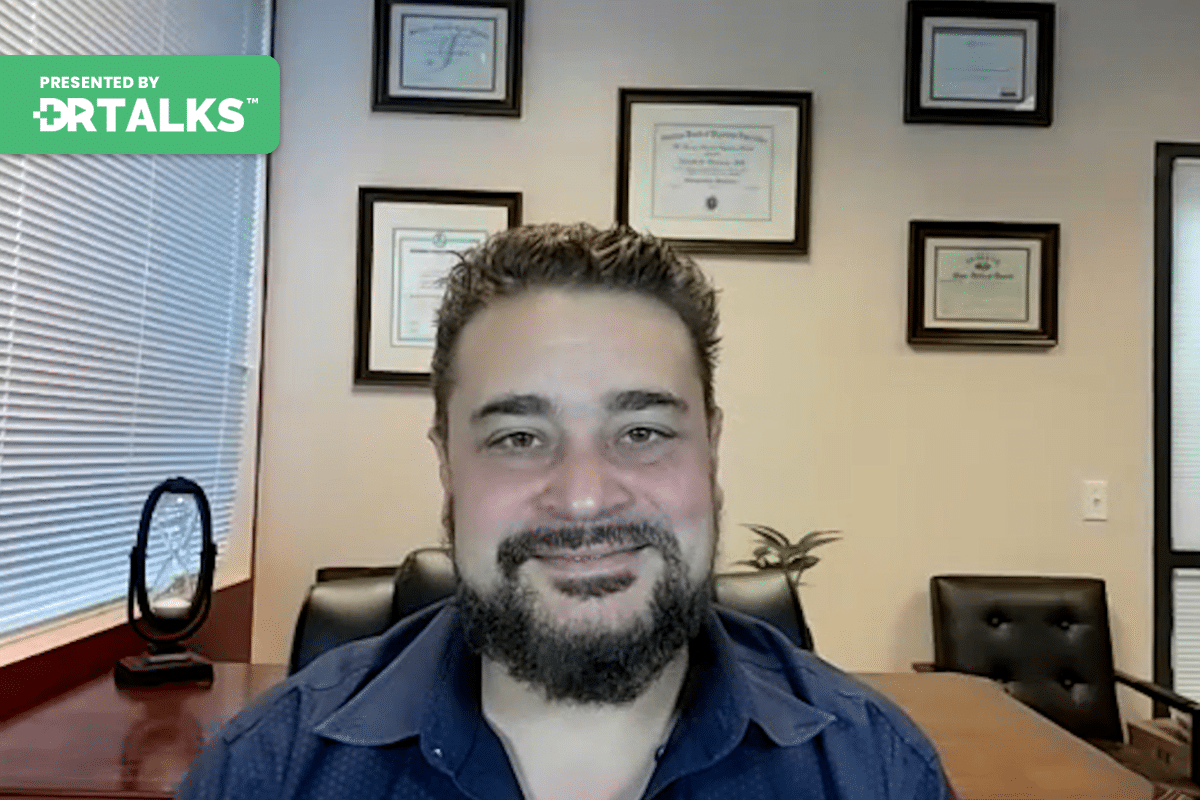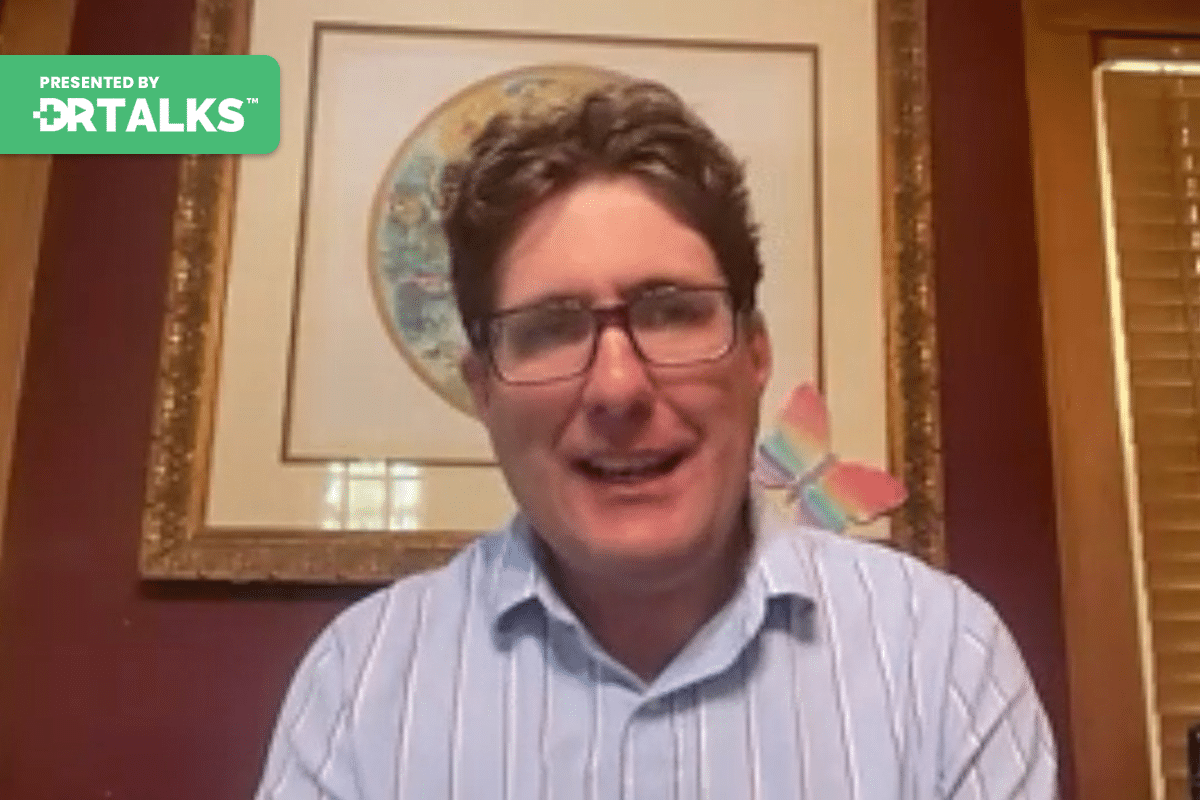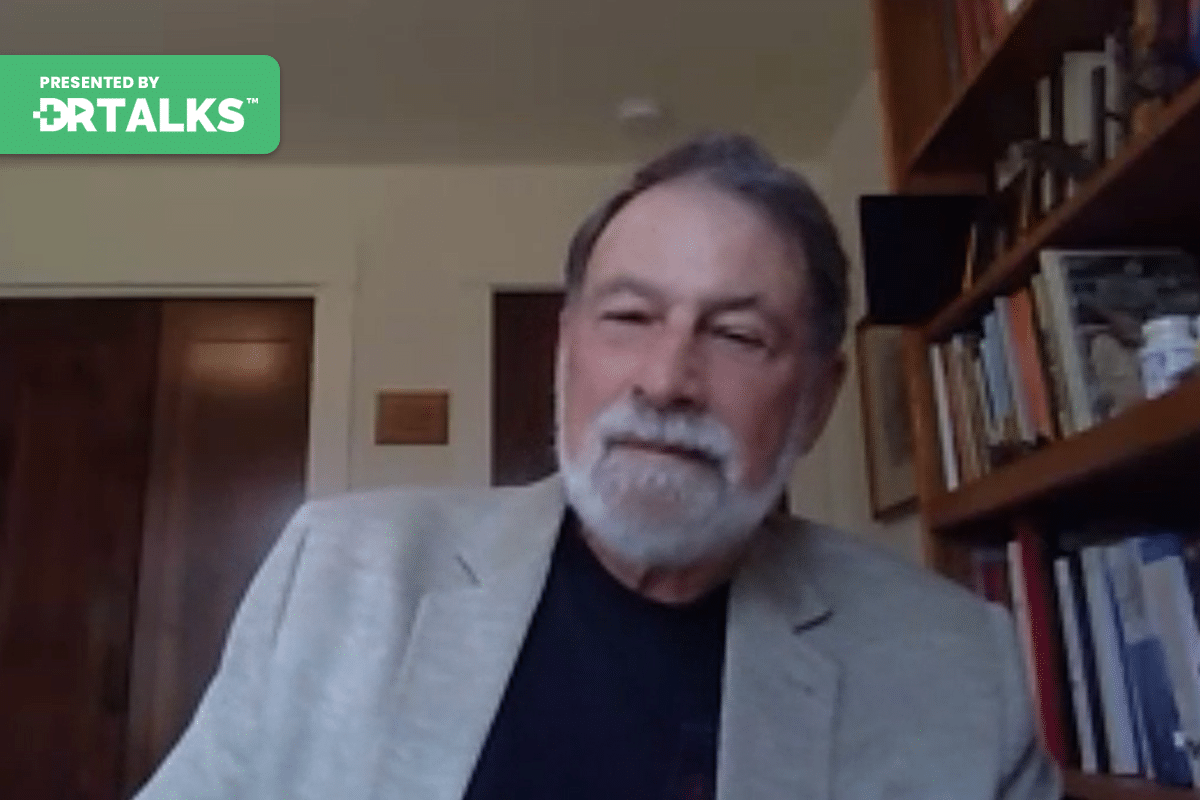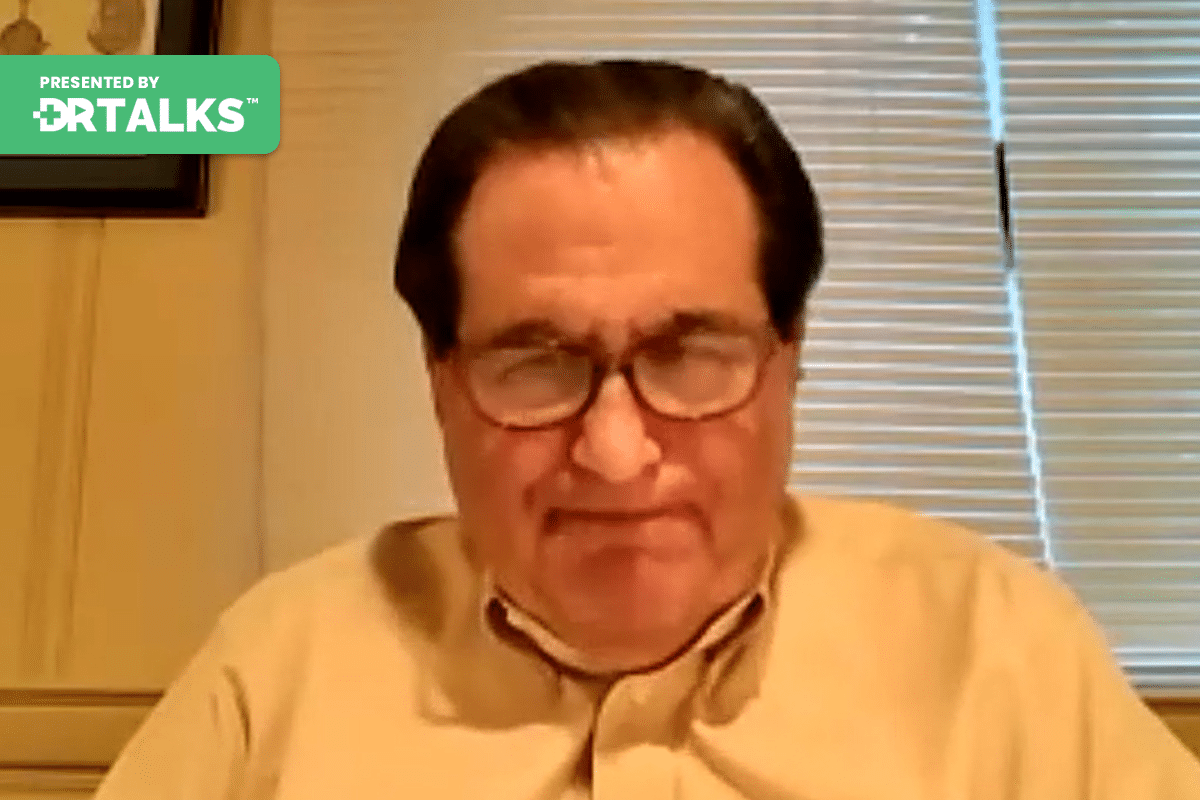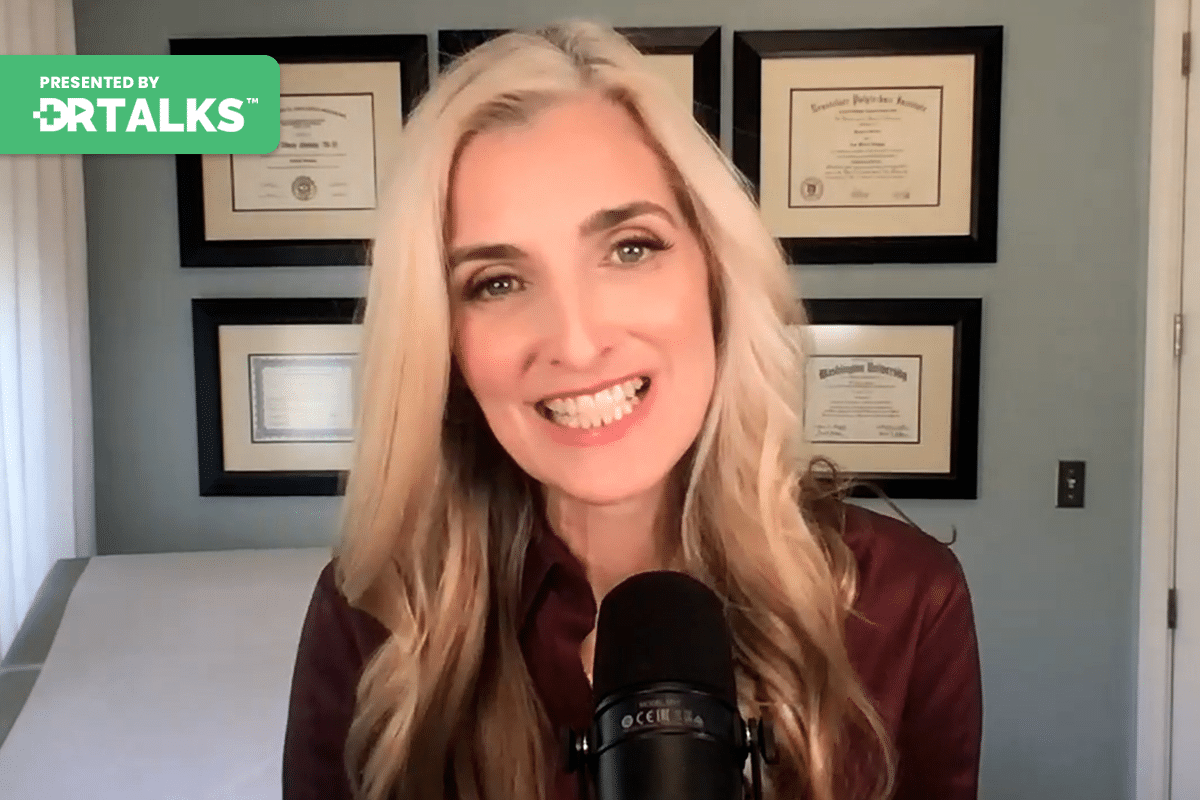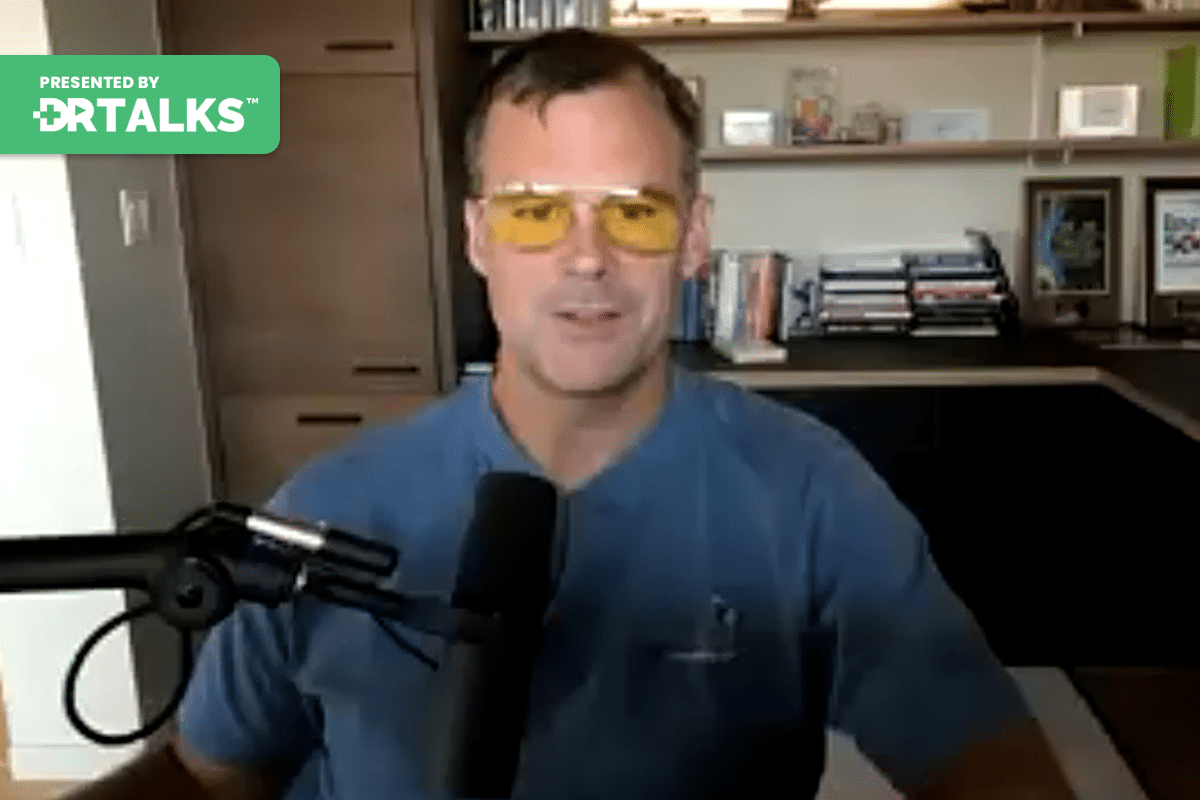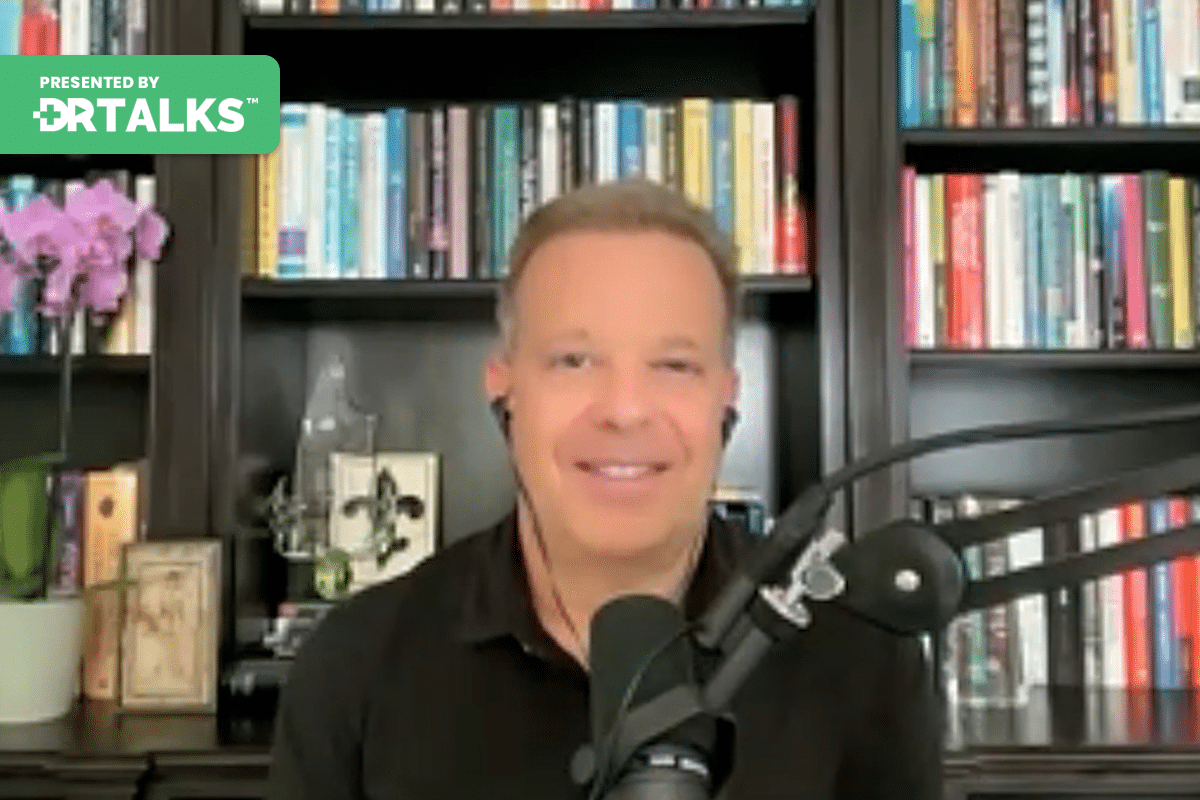Join the discussion below

Dr. Ann Shippy is Board Certified in Internal Medicine and Certified in Functional Medicine. She operates a successful private practice in Austin, TX where she is known for her compassionate, attentive, and tireless approach to caring for her patients. She has gained a considerable reputation for successfully diagnosing and treating... Read More

Yousef Elyaman, MD, IFMCP is a board-certified internist with a cross-specialization in pediatrics. He was one of the first IFM Certified Functional Medicine Practitioners in the world. He is also board certified in integrative medicine through the American Board of Physician Specialties. He is the medical director of The Guesthouse,... Read More
- Recognize the indispensable role of nitric oxide in sustaining life and its deficiency in many patients with chronic diseases
- Understand the potential health implications of nitric oxide deficiency and the factors that can influence its levels in the body
- Discover actionable steps and interventions to help balance nitric oxide levels and promote overall health
- This video is part of the Mold, Mycotoxin, and Chronic Illness Summit
Related Topics
Altitude, Altitude Sickness, Arginine, Atherosclerosis, Backdoor Pathway, Blood Test, Blood Vessels, Citrulline, Co-infections, Cyclic Gmp, Depleted, Depression, Dietary Nitrates, Endurance, Energy, Enos, Enzyme Pathway, Erectile Dysfunction, Fatigue, Formulas, Functional Medicine, Gas, Hypertension, Inner Pathway, Life, Lyme Disease, Medical Symptom Questionnaire, Memory, Memory Issues, Minerals, Mold, Mood Issues, Mouth, Nitrate, Nitrate Level, Nitrates, Nitric Oxide Indicator Strips, Nitric Oxide Modulation, Nitrite, Oxidative Stress, Pain, Products, Professional Athletes, Questionnaire, Research, Root Cause, Saliva, Saliva Tests, Sexual Function, Stamina, Superoxide, Supplements, Symptoms, Toxicity, Treatment PlanAnn Shippy, MD
Welcome to the Mold, Mycotoxins, and Chronic Illnesses Summit. I am your host, Dr. Ann Shippy, and next, we get to speak with Dr. Yousef A. Elyaman. He is board-certified in Internal Medicine, Functional Medicine, and Integrative Medicine, and he specializes in Pediatrics. He is the founder and director of Absolute Health. He is involved in multiple medical organizations, including being the Medical Director at the nutrition company HumanN. Thank you so much for joining us.
Yousef Elyaman, MD, IFMCP
My pleasure. Thank you for having me.
Ann Shippy, MD
Yes, I think we are going to have so much fun exploring some of the science behind how to help people get better. Let us start by talking a little bit about nitric oxide.
Yousef Elyaman, MD, IFMCP
Okay. Nitric oxide is a gas. It is needed for life. Half-life is less than one second, which means that half-life is how long it takes for a substance—50% of a substance—to be out of the blood. Since it is a fraction, it lasts a fraction of a second. Our body has to be able to make nitric oxide on demand. It is needed because low nitric oxide has been associated with multiple things, including memory issues, depression, pain, and fatigue. and it is used by professional athletes to help with endurance and stamina. and it is also something we use in our patients with chronic conditions because a lot of people are so depleted that they cannot make enough nitric oxide.
Ann Shippy, MD
Yes, let us dig into that a little bit more because I often use saliva tests in my office. After all, there is no real blood test. To show just how people are performing. It is shocking how many people are depleted. Let us talk about how that happens.
Yousef Elyaman, MD, IFMCP
Okay. Yes. There is the test strip. I am the medical director for HumanN. That’s one of my roles in this world. HumanN is the first company to come out with these nitric oxide indicator strips. What it is and what it is looking at are not looking at nitric oxide. It is looking at nitrite. I think one is a secret. I think that something that many do not know is the backdoor pathway to making nitric oxide. They all work on what is called the inner pathway. But the backdoor pathway is basically what happens: we get nitrite and nitrates in our food, things like beets and spinach. Nitrates are converted to nitrites in the mouth by good bacteria at night.
If you do not have good bacteria in your mouth, that will not happen. Then nitrite becomes nitric oxide.
When you are looking at those strips, you are looking at how much nitrate is in the saliva. Now, nitric oxide, after your body uses the nitric oxide, some of it goes back into nitrate again, and it can go back and forth in those forms. When you check somebody’s saliva and you see that they have low amounts of nitrite, that is an indication that they could potentially be depleted in nitric oxide, but I do not use 100%. If it is low, it is low. But I have seen people check their saliva; their nitrate level is okay, and their saliva nitrate is okay there then, but according to the indicator strip, you give them supplements to increase nitric oxide, and they do better. I do not use it. We use the strips as a tool and as a visual, but it is not a perfect test.
Ann Shippy, MD
Well, at least you know if you are low.
Yousef Elyaman, MD, IFMCP
Yes.
Ann Shippy, MD
So you can start taking supplements. What kinds of things do you see improve when you help with this pathway?
Yousef Elyaman, MD, IFMCP
Energy, memory, stamina, and a good mood. Also, you need some nitric oxide for sexual function as well. If you look at the medication out there, Sildenafil, that is used for erectile dysfunction, what they do is make them look at this byproduct of nitric oxide. Nitric oxide can increase something called cyclic GMP. Cyclic GMP is; actually, what happens is that those drugs—those medications that people take to make nitric oxide or to help with erectile dysfunction or even female sexual function—make cyclic GMP stay longer so your body does not break it down. But what happens is that you have to be able to make enough nitric oxide in the first place. A lot of people, if we modulate their nitric oxide, do not need those medicines, and a lot of people could potentially help those who do not respond to those medicines because they just cannot make enough nitric oxide in the first place. When you modulate nitric oxide, they can get better.
Ann Shippy, MD
That is great. The other thing that I see is altitude. When people go to altitude, that seems to be a stress test for nitric oxide. If you go to our listeners who tend to have altitude issues, this is one of the things that you can do to be able to go to the mountains and enjoy them.
Yousef Elyaman, MD, IFMCP
Yes. I am in Florida, but when I have patients traveling, they have noticed that modulating nitric oxide may help them not have the altitude issues, the altitude sickness.
Ann Shippy, MD
This is such an interesting area of research. I happened to be going to medical school at U.T. Houston when, in 1998, I will age myself and when the Nobel Prize for Nitric Oxide comes out. At the time, I was more than halfway through medical school, and I was wondering: What’s nitric oxide? They are making this big deal out of the Nobel Prize. It was not even something that was being focused on in medical school, even though now we know it is so, so important.
Yousef Elyaman, MD, IFMCP
Yes, it takes 20 or 30 years for the science to become mainstream. I think that is the issue. But yes, and there are a lot of drugs that are being made for it. But if you look at the Nobel Prize, one of the three people who won it, Dr. Ferid Murad, is actually on the board of HumanN. That is one of the reasons I joined HumanN as their Medical Director—to be able to get to work with a Nobel Prize winner.
Ann Shippy, MD
A big deal.
Yousef Elyaman, MD, IFMCP
Yes, let us do it. Where do I sign?
Ann Shippy, MD
He is one of the greatest thinkers of all time, and this is medicine. It is super exciting. Now there has been so much more research since 1998 on how important minerals are in this place, and I know that humans have been involved in some of the studies on hypertension.
Yousef Elyaman, MD, IFMCP
Hypertension. There is a pilot trial on atherosclerosis or clogging of the blood vessels. Although they are not allowed to be made because they are supplements, you cannot make medical claims. They are supplements. We are there to support the body system. Yes. They look at the conditions that they see. It is that they took the technology of the University of Texas, where Dr. Murad was working, and transferred that to what tools we can make to help modulate this potent substance that acts as a hormone. It acts as a neurotransmitter.
What’s nuts is that there are a lot of people with chronic co-infections, Lyme disease, mold, and toxicity. Part of their process is that when they are depleted, their body revs up nitric oxide production, but it turns into something called peroxide nitrite. What happens is that they deplete nitric oxide in different tissues, and a lot of their symptoms are caused by that. When I get those patients who have been chronically sick for a long period of time, I am often pleasantly surprised when we work on nitric oxide modulation.
Ann Shippy, MD
Let us delve into this a little bit more. What kinds of things are you seeing? How do you approach it?
Yousef Elyaman, MD, IFMCP
I do functional medicine. I practice functional medicine. I am an internist, so I can take care of those 18 and older. I am a pediatrician. I can take care of those 18 and younger. But I am a primary care provider. But the way I look at patients is through the lens of letting us get to the root cause. What’s causing it in the first place? One of the causes of their symptoms is low nitric oxide. We are going to try to find out why, and we are going to try to modulate it. However, we frequently have patients fill out a questionnaire. Actually, for all my patients, I will have them fill out something called a medical symptom questionnaire that will take a look at all these symptoms. Then, whenever we start a treatment plan, we will check another medical symptom questionnaire. That way, we can see when you have various possible symptoms that could be off. We can see if there is an improvement with whatever plan we implement. If I am thinking if they are having issues with sexual function if they are having mood issues, if they are having issues with energy, or with memory, then I look for the pattern and say, Is it possible that these patients are low in nitric oxide, that their body cannot make nitric oxide, or that the nitric oxide is going to the wrong area? There are two different ways that you can modulate. There are two ways the body makes nitric oxide. One is through what is called the enzyme pathway. The enzyme pathway is when your body takes an amino acid called arginine and turns it into arginine. Arginine then goes through this pathway, creating citrulline but also releasing nitric oxide. That is one pathway. Then certain supplements can help with that pathway.
But the second pathway is the pathway that we mentioned earlier, the nitrate-nitrate reduction pathway, and that is where nitrates turn into nitrate and nitrate becomes nitric oxide, and then nitric oxide can become nitrate again and go back to nitric oxide again. Often, people who have chronic mold or chronic infections have oxidative stress, which is rusting or oxidation. Because of the inflammation, they have their eNOS, which is the enzyme that makes the nitric oxide found in the blood vessels; their eNOS is not working properly, and it actually could make something called superoxide instead of nitric oxide. What happens is that it causes this vicious cycle of toxicity, and it makes them get worse. With that backdoor approach, we can give them nitrates, and dietary nitrates, but we can also give them a diet, what is called dietary nitrate. I do not know. Are we allowed to talk about formulas or products early?
Ann Shippy, MD
Absolutely. We want to know what the best things are out there if you can share that.
Yousef Elyaman, MD, IFMCP
Just because I want to, I look at the science, and I do this because I believe in it. I would not have joined and worked with HumanN as their medical director if I did not believe in what they were doing. But I just want to put that out there because if there is a potential conflict of interest, I want to make sure they know that I am the Medical Director of HumanN. HumanN does have a product called a couple of products, but there is one product called the SuperBeets Powder product. What that is is a fermented beetroot extract. Now, why is fermentation important? Because the good bacteria in one’s mouth are what turn nitrate into nitrate. By taking that beetroot that is high in nitrate and fermenting it, you change bacteria.
They hook it up with bacteria, and then it creates that nitrate you miss; you skip that step. Now you do not need that bacteria to make nitrate. You have the regular formula, the super, and the SuperBeets Powder formula, which has about 12 milligrams of nitrate. But then you have the SuperBeets Sport, where we work with a lot of athletic teams, professional, athletic, athletic teams, and the SuperBeets Sport has about 18 to 20 milligrams, which would be equal to about 400 milligrams of dietary nitrates, which, if you look at the Dash to Diet, is the food plan that is recommended in conventional medicine as the medicine for high blood pressure. You could get about 800 to 1200 milligrams of nitrates from food from a natural source, not cold cuts and such.
Ann Shippy, MD
Those are not the nitrates that we want.
Yousef Elyaman, MD, IFMCP
Those are not the ones we want because what they do is the product, which will cause so much confusion in the literature that they end up just lumping it all together. If you had a hot dog, that is not going to add that up. But really, what is a hot dog? It is probably the worst part of the meat. It is not it. On top of that, they cook it at really high temperatures with nitrates, and it turns into nitrosamines, and nitrosamines can be dangerous. What happens? That is where we get the fermented beet powder. It is going to have a high amount of that nitrite. then the body does not have to do anything except convert it into nitric oxide. The other thing is working on the enzyme pathway, or the eNOS pathway and that is where we have the NEO40 Professional. The NEO40 Professional has things in it that are designed to make that enzyme work properly, but it also has nitrate in it. It hits both pathways, and it is a lozenge. This is UT Tech Texas technology; it is a lozenge that you put on top of your tongue, and that slowly goes into the system. Then the human products; are also one of their more popular products, the Chews, the Heart Chews. and then Memory & Focus and the Chews have different antioxidant substances. For example, a major ingredient will be grape seed extract, and we have good data on blood pressure and grape seed extract. We think that that helps the enzyme work properly.
Ann Shippy, MD
For our listeners, there is a very big difference between grapefruit seed and grape seed.
Yousef Elyaman, MD, IFMCP
Yes. Be careful that the grape seed is not the same as the grapefruit seed.
Ann Shippy, MD
The grape seeds are antioxidants and all kinds of other things. then the grapefruit seed is more antimicrobial to kill things off. There’s a lot of confusion about this. Two things.
Yousef Elyaman, MD, IFMCP
We also have Memory & Focus. The Memory & Focus are what that is. It has Resveratrol. Resveratrol may increase something called sirtuins, which are needed to make mitochondria, which give us energy. It is what it has; it has what we believe are anti-aging properties, but this and SIRT1 help us make eNOS, which makes nitric oxide, and nitric oxide is needed to also release SIRT1, and both of them can increase our mitochondria.
Most of the patients that are running around with this, with these current, chronic conditions, mold, lime, and whatnot, are lacking nitric oxide; their bodies cannot make nitric oxide in the right areas, and they also get damaged mitochondria. Mitochondria are these little cells within our cells, and they are the powerhouse of the cell. Have any of your guests talked about mitochondria?
Ann Shippy, MD
A little bit, but it is great. We never know exactly what order people are going to watch things, so it is good to
Yousef Elyaman, MD, IFMCP
We will just do it there.
Ann Shippy, MD
To overexplain and underexplain, so you are doing great.
Yousef Elyaman, MD, IFMCP
Our body has to take the oxygen that we breathe in, and then that oxygen goes through our mitochondria. These are the powerhouses of our cells and those that make ATP, or energy. You get most of your mitochondria from your mom, not from your father. The mitochondria have their DNA, and they can split and come together. It is called fission, and for them to work properly, we need nitric oxide for what your body needs it for. That was why they won the Nobel Prize for it: nitric oxide was needed for so many different processes.
Now, when we go back to the mitochondria when our body uses oxygen to make energy, we create toxic byproducts. Since those toxic byproducts are being made in our mitochondria, they are the first line. They are susceptible to being destroyed. When those mitochondria start getting destroyed, that is when we start seeing chronic fatigue, fibromyalgia, chronic pain, and some of these Alzheimer’s and dementias. Because they start at the mitochondria in our cells and start to get destroyed, if you look at chronic mold and Lyme, what is happening is that they are toxins and they are destroying our mitochondria.
That is why I think people do so well by taking things or doing things to help increase nitric oxide because of that mitochondrial effect as well, apart from opening up blood vessels. Because if you have a chronic infection, you need blood flow. If your brain is not working well, you need blood to flow to it. How can you do that? You increase the body’s ability to increase nitric oxide. But you also want to know that hyperbaric oxygen helps as well.
Now here’s another thing that not too many people know about, but it is cool for you. How does our body carry oxygen through our blood cells? Our blood cells have something called hemoglobin, and the hemoglobin holds onto oxygen, and then the oxygen is released from the hemoglobin so that we can make all that energy. Guess what? When you do not have enough nitric oxide, you cannot release the oxygen. You need nitrogen oxide so that the oxygen that you do have can get released into the tissue where it is needed.
There are so many reasons why increasing our body’s nitric oxide would help with these chronic diseases. Or should help, or we believe would help in these chronic diseases, not just increase in blood flow, or because for a lot of our patients, what happens is that it is in the wrong area. They end up having lower blood pressure because their heart rate is not because of the byproducts of nitric oxide flowing in the system. The tissue cannot get into the blood; it cannot flow into the tissue it needs, but then the heart, then your blood pressure, goes down, and it is this vicious cycle that they get stuck in.
Ann Shippy, MD
You have done such a great job of reviewing the most important mechanisms. There are so many of them that are most important for our audience, and some of the things that they can take to help, why, and what other lifestyle things are too. In addition, because I know about your patients, you are giving them quite an intricate plan.
Yousef Elyaman, MD, IFMCP
Absolutely. Lifestyle thing. I just forgot one thing. Memory & Focus have Resveratrol in them, but Memory & Focus also have Coffee Fruit Extract. What we are starting to see in research is that it increases something called BDNF, or brain-derived neutrophil factor, which is Miracle-Gro for the brain. That is the second thing.
Now comes back into the lifestyle. I am really glad you said that because we get all caught up in the science and we go down these little rabbit holes, and then you get the false impression that what needs to happen is that we need to just take this supplement. That is far from the truth. Lifestyle is key. Lifestyle is the foundation. The psychological, spiritual, and emotional state is a big piece here; our psychological, spiritual, and emotional state drives our health.
If so, let us just take the example of mold. Mold is a toxin, and some people do better with that toxin than others. We all have toxins in our bodies. They did the ten American studies, the ten American studies, and the environmental work group. They looked at these ten Americans. They checked them for all of these different chemicals, and they found over 200 chemicals in each of those ten Americans. The scariest thing is that those ten Americans were babies. It was cord blood, brand new, that came into the earth with all these toxins. Mold is going to be one of those toxins. What happens is that our body should have some resilience so that it can handle some toxicity. But if it gets overloaded, then we are going to have problems. Then we are going to have downstream symptoms, too.
But going back to mold toxicity and resilience, there is a theory out there. I am certified in psychological trauma as well. I work at a place called the Guest House as their Functional Medicine Director as well. We are all about psychological trauma. We are working on psychological trauma because it is the root of a lot of mental health issues. There is a theory that when you are in a stressed state, when you have a lot of unresolved trauma, or when you do not have healthy coping mechanisms, you are burying in those emotions; you are not feeling your emotions. What happens is that our body goes into a hyper-vigilant state, trying to protect itself. That is why you go talk to somebody who is triggered, and they snap at you. It is not your fault they were triggered. They are looking. They are on the flight. They are trying to look for anything that can hurt it. Well, what we think might happen as well is that our bodies will also become hyper-vigilant. Something that may be a small amount of toxin would not hurt it. Normally, it picks up on that small toxin. It just overreacts. A lot of what may be happening here with mold, Lyme, and whatnot is that our body is in this weak, hyper-vigilant state, and it is just looking for anything that can hurt it, and it is overreacting. Does that make sense?
Ann Shippy, MD
Yes, for sure. especially, I think, on an even more energetic psycho-spiritual level, when the body senses that there is too much injury coming into the mitochondria, to the enzymes, to these important pathways, it probably just says that enough is enough. We have to go where we are at war.
Yousef Elyaman, MD, IFMCP
We’re at war. That is why. Yes. If you avoid mold, you are going to try to get out and away from the source. We know that they can be fat-soluble, so they are stuck to our fat. Our body needs to be able to detox that out as well. We need good detoxification pathways working as well, to decrease the amount of exposure. But also, we want to work on psychological and spiritual balance.
Ann Shippy, MD
I think then what happens is when you call a stop to the war or hate the body just to get detox. But when is it ready to say, Okay, we are safe; we can go back into equilibrium? It just stays at war.
Yousef Elyaman, MD, IFMCP
Sometimes that is where we are doing childhood trauma work or even adult trauma work. We get all of these false beliefs. A lot of these beliefs are meant to protect us. A lot of patients will have this. I cannot get well, I am sick, or when they will own their illness, my Lyme disease is acting up. My mold is acting up, or my SIRT, or whatever it is. Once you own it and once it becomes a part of you, it is even harder to get it. It is even harder to nip it in the bud. But yes, you get down, and you get into this vicious cycle of toxicity, making you feel bad, which affects your psychological and spiritual state, which makes you more toxic, which makes you react more. We just have to break that cycle, and we have to move in that direction of healing. To work on our psychological, spiritual, and emotional states, we should have rituals. We should have a daily ritual, if not several times a day, for psychological and spiritual balance.
Then exercise. Exercise and movement are extremely important. If there was any, if there was that magic bullet, that would just fix everything. Exercise. Seven underlying imbalances cause all diseases, surrounded by one’s psychological, spiritual, and emotional state. Exercise helps with all of that. It does not have to be; it cannot be your only coping mechanism because you can over-exercise. But a lot of people are under exercise. Exercise gets blood flowing. It helps your body make more mitochondria. It helps with eNOS; it is a big piece, and then sleep and relaxation. Go ahead.
Ann Shippy, MD
Listening to the exercise piece. It does not have to be going to the gym and working out for an hour. It can be doing some exercise if you cannot exercise at all now; it can be just starting with some stretching or going for a walk. How you use yoga poses and then gradually build up as you get better
Yousef Elyaman, MD, IFMCP
Small and consistent is so much better than just hitting that gym one time for one week and then being so sore you cannot go back again. The gym could be very motivating for some people. Go on a walk. Listen to the summit while you are walking.
Ann Shippy, MD
It is a great idea right now.
Yousef Elyaman, MD, IFMCP
It will give you double healing. But we also have technology. Technology can hurt us, but we could also use it for good. One of the ways we can use it, part positive, is positive. Maybe you could be listening to this on the device, but also with steps, and see how many steps you have in a day. We have pedometers; we go from 3,000 steps to 5,000 steps. I have a patient who was on antidepressants, and she was getting worse. The reason I have had a lot of patients like this is because all I got her to do was walk for 20 minutes a day, go walk in one direction, turn around, and come back. She came back to me. We lowered her Prozac. We were able to get her off Prozac because exercise just has that wonderful effect. Then you have sleep and relaxation, which is important. Relaxation, which we talked about a little bit with our stress, was having the ritual of healthy coping mechanisms such as meditation, slow breathing, and making sure that we felt our feelings and did not run from them.
But sleep is extremely important for healing. When we sleep, we know that our liver has to get rid of toxins. How are you going to get rid of mold? You have to have your liver metabolize that. Your fat has to release it. That happens when you are sleeping, and a large part of it happens when you are asleep. We also need to make hormones, neurotransmitters, and nitric oxide. A lot of that is happening. A lot of these biochemical processes happen when we sleep. When you go to sleep, your body and your immune system get fired up. One of the things your immune system does is repair damaged tissue. That is where your body is going to recover. That is why if we are not getting good-quality sleep, that could also be an issue. We got sleep and relaxation, which is important. Then, of course, gut health is extremely important too.
Ann Shippy, MD
We are the universe.
Yousef Elyaman, MD, IFMCP
Yes. Fermented foods, but some people are firm because they are in such a sensitive state that fermented foods can make them worse. That is where you get your functional integrative medicine practitioner, who is versed in that, who can help you through that, and who can help. Sometimes you have to kill off some of those bacteria first, and sometimes you have to go on a special type of food plan. But then that also brings us to nutrition: eating foods that are healthy for nitric oxide, foods with higher nitrates, etc.
Ann Shippy, MD
What those things are? You mentioned beets and spinach. What else should they be?
Yousef Elyaman, MD, IFMCP
Lettuce has a decent amount. Cress has a certain amount. There is. Let me think of what else is in the chart. Celery.
Ann Shippy, MD
It is hard to come to mind that Swiss Chard is that one.
Yousef Elyaman, MD, IFMCP
Yes, Swiss chard.
Ann Shippy, MD
Swiss chard, yes. Yes. Okay. But that is great. A lot of different vegetables have a high nitrite content, so
Yousef Elyaman, MD, IFMCP
Certain people have more than others. That is where the nice thing is—the deeper greens and the reds. That is where the beets and the beetroot come in. Then sometimes we have patients who are sensitive to oxalate. That is where supplementation to get the nitrate and nitrate can help because it does not have a high amount of oxalate in the body.
Ann Shippy, MD
High oxalates are a very common problem with our mold patients. I am glad you brought that up.
Yousef Elyaman, MD, IFMCP
Yes. I think they hit on environmental things. Intermittent fasting.
Ann Shippy, MD
Huge.
Yousef Elyaman, MD, IFMCP
Yes. That is huge. That increases serotonin, and that can increase CO2 and increase mitochondrial biogenesis, which helps increase eNOS and helps our body make nitric oxide. That is a big one as well.
Ann Shippy, MD
I would love it if you brought up the daily ritual, and that is such an easy thing to implement. I would love for you to talk about that a little bit more. what some of your favorites are and how you think they are helpful.
Yousef Elyaman, MD, IFMCP
Okay, this is where I think, man, you all that are watching this today are lucky because you are going to have all my secrets. All my years of secrets are going to be put into this. This is a result of my work with the Guest House for my training and psychological trauma, doing my stuff, and learning to feel my feelings there. There are different things that you can do that you do not want. Part of it is not overthinking them because overthinking things causes a lot of our addictive behavior, and it causes a lot of our stress from overthinking, overthinking, overthinking the brain, and overthinking things. A lot of times, people with these chronic conditions are highly intelligent, but their brain is now stuck in that trying to protect themselves. That is one of the big issues. First of all, I would say practice, read, and practice. Rumi’s poem is called The Guest House.
Ann Shippy, MD
That is one of my favorites. I am so glad you brought that up.
Yousef Elyaman, MD, IFMCP
That’s a big piece of it, because what it talks about—just look up Rumi, the Guest House—those emotions, whether they are positive or what are perceived as negative emotions, are all called honored guests. Honored. We are supposed to invite them in, and we are supposed to feel them. It says, Whatever comes to you, face it with gratitude. That they may be, who knows? It may be clearing you out for a new delight. What I tell myself when I am triggered, first of all, is that I want to know what to say when I am triggered. Because what usually happens is that you get psychologically triggered, and then you are snapping at people, eating or doing drugs, gambling, shopping, or whatever it is.
We are just playing around and not knowing it is happening, so be aware of the signs that you are triggered. For me, it is when I think I am a funny guy that I identify as a humorous guy. Okay. When I am joking so much that nobody can get anything done, including myself, I am probably triggered. I am trying to self-medicate. I also pride myself on being nonjudgmental, judgmental, and right. My job is not to judge, and I want to be more supportive. But when I start being hard on others, I have to recognize that I am also being hard on myself, and I have to recognize that I am triggered. I need to take a step back. I have to stop thinking through it. Then, when I am triggered, I tell myself, Look, I know that I feel it sucks. It always sucked, and it always will suck, but this will pass because it always passes.
Now, I memorized that line because, when you are triggered, you do not have time to figure this stuff out. A lot of people wait till they are triggered and stressed, and now they are trying to say, Dude, you have not said for 20 years, and now you are going to lose in the middle of stress. With all the adrenaline going, you got to get used to it, I know. I feel like it stinks. It will always look bad, and it will always stink, but it will pass then I say, Bring it to feel. What is funny is that when you are not running away from negative emotions, but you are just feeling them without thinking of ways of fixing them, you are just saying, I just got to feel this to transform the frequency of my soul. It is amazing. It does not. Is it even that bad? It just goes through you, and then you find out three or four hours later, Man, I am feeling better than I did before. I am so glad I did that.
The other thing is going back to a ritual. What I will have for people is that you can Google; there are different emotional wheels. I will have them do emotional check-ins, I will have them take a look at an emotion wheel, identify the emotion that they are feeling, and hold that feeling. Just hold it, and then start breathing. I will have them do what is called heart breathing. If you look at the Institute for Heart Math, they talk about heart rate variability, breathing in through the heart, and breathing out through the heart. 6 seconds in, 6 seconds out. I will tell them to take just a minimum of three deep breaths. Into the nose, out to the mouth. 6 seconds in, 6 seconds out. The reason for that neuro researchers found that when you breathe 6 seconds in and 6 seconds out, it helps trigger the vagal nerve. The vagal nerve is what helps us overcome fight flight, and freeze when we are triggered. That is why I go with 6 seconds in, 6 seconds out. I have them do at least three deep breaths.
Then you imagine that you are surrounded by your higher power, and your higher power connects you to the universe. With that gratitude, you mentioned three things you are grateful for. Thank you to my family. Thank you for my brain. Whatever it is, I just mentioned three things you are grateful for because it is really hard to be grateful and also be miserable and feel like the whole world is going wrong. It is because the heart can only hold so many emotions at once. I mentioned three things. I have them mention three things they are grateful for feeling. I have them say three positive affirmations—what their heart needs to hear, not just something memorized that they are not processing. What does my heart need to feel? I am smart, and I am good-looking. Just so they do not turn on the narcissistic spectrum, you can say thank you Higher power. Thank you, God, or thank you, Higher Power. I am smart. I am funny. What does my heart need to hear? The problem is that we have these negative, inner critic-type things that hit us in stressful situations. then because whenever something bad happens, you are, see, I do not love to see them. I hate to see them unloved. See, nobody hears you. Nobody cares. You have said it so many times to yourself that it just becomes ingrained.
We want to do the opposite. What does your heart need to hear? then if they are stuck in, they cannot think of gratitude. Let us go back to gratitude. I just remembered something. If they cannot think of something they are grateful for, they can ask the question, What could I be grateful for? Then you mentioned three things that your heart needs to hear. Say it. Feel it. Then you take it completely off yourself, and you think of other people who may be going through what you are going through. and you send positive energy or prayers to three people and do not tell them about it. Can you please help Sally feel like she is enough? Please help John through his financial difficulties. Please help. What you do is pray for three people, and then you end it by asking for three things. If they are the best, please help me. Please help this interview be freakin fantastic if it is the best, whatever it is. But you ask for three things, and then you just stop. Twice a day. It can take less than 5 minutes. I have them. I have them do it. I will see them three weeks later and say, All right, did you do it? No. Okay, let us talk about that. Why did you not do it? Not in a judgmental way. Just what? What held you back?
Ann Shippy, MD
What was blocking you?
Yousef Elyaman, MD, IFMCP
What’s blocking?
Ann Shippy, MD
Yourself? Because it is a gift that you can give to yourself,
Yousef Elyaman, MD, IFMCP
They get caught in the threes P’s for doing so. Perfectionism frequently leads to Procrastination, which leads to Paralysis. They want it to be perfect. No, not perfect. You do wrong; you do it messy. You just put it there. You just do it. then, and do not overthink it. Just do it. Then in three months, three weeks, see how you feel, and almost everybody comes back. That has been done twice a day. They say, Well, I do feel better.
Ann Shippy, MD
It has a different body chemistry. I am going through those steps. Those are beautiful steps that you both took together.
Yousef Elyaman, MD, IFMCP
Thank you.
Ann Shippy, MD
Powerful. Thank you so much for sharing that.
Yousef Elyaman, MD, IFMCP
You’re very welcome.
Ann Shippy, MD
I love that. the information that comes through, and we get to have these real conversations. There are so many different things that people can do. But some of these really powerful things rise to the top. I think. Yes, I love to go back to the nitric oxide conversation for a moment and talk about dosing, how you get started, and then how long it takes to see some progress.
Yousef Elyaman, MD, IFMCP
Okay. For those people who have chronic SIRS, like mold, Lyme, and whatnot, what I have seen is that it takes about a week and a half before they start noticing a big difference. But I give it about a month because a lot of it is because if they are depleted and can make nitric oxide, and they are, and because they are in this toxic state, that enzyme pathway does not work as well.
What we do as we are trying to heal that enzyme by giving the nitrate and nitrite supplements can get them feeling better much faster because they have been missing this for so long. What I usually do if their blood pressure is on the lower side is, of course, ask your health care provider; this is not medical advice. This is for entertainment purposes only; do not do what I say. With that being said, what I do with patients is, if their blood pressure is on the lower end, I will have them start with the SuperBeets Sport because it has fermented beet powder, but it also has about 20 milligrams of nitrates from fermented beet and it has coconut water or it has minerals from coconut water. We use it with four professional athletes. But I found that a lot of these chronic disease patients do well with it. It tastes like you mix a little packet in water, and they do it once to twice a day, and they will do it right before working out.
Also, if they cannot stand the taste of beets and if they are battling issues with blood pressure control, we are thinking, man, their blood pressure is probably high because they are just running out of it completely. Then I also like what is called the NEO40 professional lozenges. It is a lozenge you put on top of the tongue. What happens is that part of it can work with the good bacteria in our mouth, and part of it has vitamin C in it, and it is one of the things we have to do; we do not have time to talk. We can do a whole podcast on methylation, but it has what are called methylation factors: methyl folate and methyl B12. It has hawthorn berries in it, which can all help with that pathway.
Then you have, and then sometimes what I will do is have them either take the SuperBeets Powder twice a day or the SuperBeets Sport once to twice a day. Or I will have that, or I will have them take that. NEO40 Professional twice a day in the beginning, and then you go back to once a day, and then you can also add on top of that the Chews. But the Chews do have a little bit of sugar. You have to balance it out with a diet and whatnot. A spoonful of sugar helps the medicine go down. But I know that with chronic diseases, we do not want the sugar levels to be too high. You want to counteract the protein, but you have the super-bright heart and the SuperGrapes, which you can help with. If they are having issues with memory and focus, sometimes I will add the Memory & Focus Chews and have them take two of those a day.
Ann Shippy, MD
Well, this has been so helpful. How do people find you?
Yousef Elyaman, MD, IFMCP
They find me at TED talks. They can watch that.
Ann Shippy, MD
Then what is it called?
Yousef Elyaman, MD, IFMCP
It is called, Is the Guts the Gateway to Disease?
Ann Shippy, MD
That is awesome. I cannot wait to watch it. I did not know that.
Yousef Elyaman, MD, IFMCP
I am not. From a social media point of view, I am more active. I am more the guide, the coach, or whatever you want to call it, for health care professionals. My big focus is taking care of my patients at the Guest House. If you check out the Guest House, you will find my information and the Guest House information there. That’s the Trauma Center. My practice is that I stop taking new patients, but I have other providers that undergo training every week. It is called Absolute Health in Ocala, Florida. We have that as well. then health care professionals, I run Facebook groups that are for health care professionals, and I have the educational programs that I will do with health care professionals. But my focus has been on helping healthcare professionals.
Ann Shippy, MD
That’s great. That’s why it’s so important. We need more of us out there doing this work. It is great that you are doing that educational piece.
Yousef Elyaman, MD, IFMCP
HumanN. If you want to know about the company, it is a HumanN website with two N’s
Ann Shippy, MD
Well, I appreciate your wisdom and vulnerability in sharing your inner thoughts about how some of these things work and in your expertise. Thank you so much for taking your time today.
Yousef Elyaman, MD, IFMCP
My pleasure. Thank you. Thank you for having me.
Ann Shippy, MD
Thank you.
Downloads

